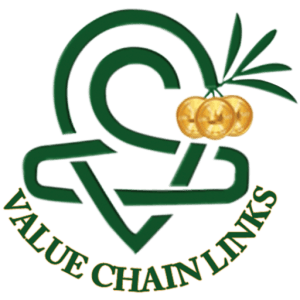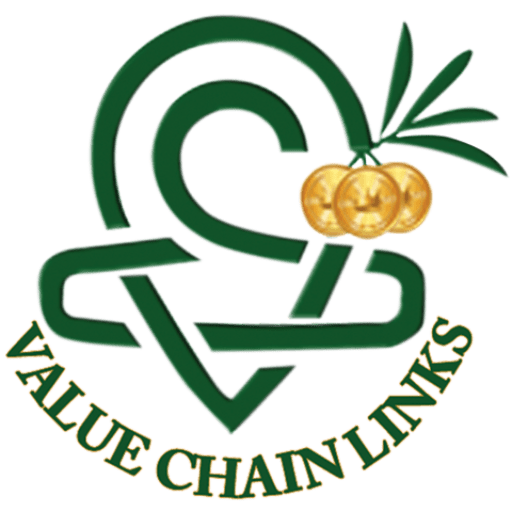
| SEVEN REASONS WHY NOW IS THE BEST TIME TO CREATE PROSPERITY |
| “We grow through challenges while doing for others.” |
*This column is most suitable for high-level governmental decision-makers. Please share it with them and help get their attention toward the opportunities described below if you know any.
For many decades NOTHING has created a more significant impact on food security in non-developed economies than the current Russia-Ukraine war.
As you will see, this critical situation can turn into a catastrophe or a blessing for your country. Which of the two your country will experience entirely depends on your actions.
But wait, I am running ahead of myself; we will get back to it soon. First is a short story about a businessperson who recently contacted me.
BUSINESS TALKS
Him: Hi Nimrod, I can see the vision and the amazing things you are doing, and I love it.
I wonder if you could help me with a project to promote the agriculture of a particular country (which, the name I can’t share) and build a successful export operation?
I: Gladly. Your goals sound about right and precisely what such countries need.
Him: Great, how can we move things fast forward?
I: I understand that you want the project to have export with a national impact?
Him: Yes.
I: If so, the first stage is to talk with high-level government officials and understand their goals and vision regarding the future of the agro sector.
Him: It’s not a problem (a long pause). But wait, I don’t want the government to be involved in the project. They only cause problems. You know, we have all the money we need to do any size of a project that we would like. Therefore we don’t need government involvement.
I: First, you never have all the money you need for such national projects. Besides, if we want the project to succeed, grow and create a national impact, we MUST cooperate with the government, even if the government is not a pure business partner.
Him: Why?
I: While I understand your attitude and share your fears, there are things that ONLY governments can do. For export and the long-term national impact, you need the government.
Him: Can you share an example?
I: Biosecurity and international trading agreements are two examples. How can we help any country increase its exports’ value (volume and quality) and expand to new markets if the government has no agreements with the markets we wish to export and is not on board with us?
Him: I see.
I: Without government involvement, we wouldn’t have the required certificates, and without those, we can’t export, and we would be wasting our time and invested money.
WAR: RUSSIA-UKRAINE
I recalled the above conversation after reading the article titled “Ukraine and the global food crisis: how bad will it get?”
Heads up, in this paragraph from the article, the authors discuss two options of the “war-intensity” and its impact on the global food crisis.
Option A – The war continues as it is today and reaches a state of “Frozen conflicts.“
Under Option A, they predict:
* More than 280 million people will be plunged into food insecurity this year.
* Those facing extreme poverty will rise by 200 million.
* Those on the edge of starvation will rise by 7 million.
Option B – The report argues, somewhat counter-intuitively, that a massive escalation by Russia could result in less of a food crisis globally.
Faced with more intense violence and an understanding that the conflict is deepening, the authors say, markets and governments would jump into action more quickly, dropping trade barriers, rustling up more humanitarian assistance, and working together to meet the challenge.
The article ends with the question, “Is this the crisis we need, anyone?”
You see, if we want to change the agro sector on a national scale, we must have partnership relations with the government.
Facts: Ukraine used to export 10% of the world’s wheat, 20 million tons a year. Growing wheat turned Ukraine into a food-security superpower.
Food for the mind:
Do you think your country has the potential to take part in growing and exporting staple crops?
Do you see any real business opportunities in this situation?
Pause for a moment, and think of the good that came to Ukraine from becoming a global superpower in staple crop exports!
Do you think Ukraine would get so much support and attention if they produced only for themselves?

THE BEST TIMES EVER
From the above recent analysis, we learn that regardless of the severity of the conflict in Ukraine, it is up to governments to improve the global trading and food crisis by changing their approach and dropping trade barriers.
We can conclude that working hand in hand with the government is a MUST. If your agro-business activity supports the national economy, the government would literally fight for it.
If you look at the past 50 years, you would realize a fundamental truth; the present is the best time ever for non-developed economies to improve, revolutionize, and re-establish their agro sector as a pivot in their national economy.
FIVE + TWO REASONS FOR WHY NOW IS A PERFECT TIME FOR NATIONAL PROGRAMS IN THE AGRO SECTOR –
- Readiness for NATIONAL PROGRAMS has never been greater.
In the past year, I have seen governments of non-developed countries that, based on non-realistic business programs for the agro sector, took huge loans and grants (I leave the $$$ numbers to you to imagine), which most probably they would fail to pay back.
If this is the case with non-realistic programs, imagine how much capital governments can raise for the agro sector long-term strategic program based on a realistic, well-designed, and field-proven (i.e., low risk) plan!
- Business opportunities are better than ever.
Huge (and growing fast) premium markets are ready to receive and pay a premium for high quantities of quality products.
- Access to funds has never been easier.
Banks, international financial organizations, and most importantly, business people and investors are ready to invest in staple and high-value crops’ food production. The growing population and demand for quality products and the inevitable global crises impacting food production and supply create a confident forecast for high demand and rising prices.
- Technology was never more advanced.
Availability and accessibility to state-of-the-art technologies benefit those who know how to use their advantages. This, regardless of where they are or how much money they have in the bank.
- Sentiment has never been more positive.
The public and market opinion never had a more positive sentiment towards supporting high IMPACT investments in non-developed economies. This is in light of the inability to meet the world’s food needs.
(PLUS TWO)
The above five themes/sections are self-explanatory and intuitive. In fact, until recently, it was a concept that you need nothing in addition if you have those. For that reason, AGRA’s program focuses on the above themes.
We were looking for a chance to transform countries and farmers from net importers to exporters and poverty to prosperity.
Unfortunately, reality proved that the above five themes are insufficient to create a continuous and sustainable change.
This didn’t prevent billions $ from continuing to flow into poverty and hunger eradication mega-plans, causing many more billions and decades to go down the drain.
Why did they keep following the same failed path if it didn’t work?
Because even when things do not work, it is the nature of people and systems to continue to operate by the force of inertia.
But now, at last, this has changed; with the Dream Valley model completing the two missing links, we finally have a WORKING alternative.
If you have followed my columns for a while, those two additional sections I called “the missing links” wouldn’t surprise you.
To those who don’t follow me, I say; that discovering the “missing links” results from many years of in-depth research, field test, development work, and out-of-the-box thinking. All these were then field-tested in hundreds of sites for over seven years.
Thanks to the discovery, crystallization of ideas, and field-testing of the two missing links, we now understand what went wrong and why poverty and hunger were persistent although endless efforts. As a result, we now understand well what and how should be done to succeed.
Here are the two additional themes / “missing links,” with a short explanation.
- The first missing link: Dedicated business models for smallholders.
In 2023 for the first time in history, a conference will be focused only on Business Models dedicated to smallholders in non-developed economies.
The conference’s official name is – The International Conference on Business Models in Agriculture (IBMA). I am proud to be its Director and part of the organizing committee.
IBMA is a milestone for those waiting for a historic turn for the two billion people whose livelihood depends on agriculture.
Dedicated business models for smallholders in non-developed economies are a breakthrough in our understanding of the sources and causes of poverty and ways to approach its solution.
- The second missing link: A Holistic Concept; Ecosystem& Mechanism, transforming the agro sector at a national level.
The early bird in this novel domain is a spinoff of Biofeed named Dream Valley. Dream Valley is a business-oriented model (Program and Platform). For more information, note the bonus paragraph below.
Now that we have discovered and developed the “missing links,” themes 6 and 7, we can engage better in fighting poverty and hunger, or as I prefer relating to those – create prosperity.
Investors, Decision-makers, High officials, and Governments, this is the perfect (positive) storm for you! Would you sit aside and do nothing, doming your population for more suffering, or would you act and seize the moment?
THE END OF THE MISCONCEPTION ERA
I hate to say this, but based on my observations, we perceive poverty and hunger as a problem we need and can eradicate as we do with a disease for too many years.
And if it is “a disease,” then there is a “pill” we should prescribe to fix the problem.
For example, read the paragraph below. Can you figure out what Bill Gates believes to be “the magic pill”?
“I’ve never been shy about my passion for fertilizer. It’s a magical innovation responsible for saving millions of lives from hunger and lifting millions more out of poverty by boosting agricultural productivity.”
This “magic pill” attitude towards poverty/hunger can be simplified as follow:
Poverty –
The problem (disease): People without money.
The solution (medicine): We would continuously “inject” them money through grants, subsidies, loans, etc. Then, we wait, hope, and pray for things to improve.
Hunger/unproductive agriculture –
The problem (disease): Low yield.
The solution (drug): We would continuously provide them with technologies/chemicals. Then, we wait, hope, and pray for things to improve.
Unfortunately, waiting, hoping, and praying, even in addition to billions $, didn’t bring the expected change.
The above attitude caused pain, suffering, and loss of decades to 170 non-developed economies and two billion people whose livelihood depends on agriculture.
Therefore, responsible governments should immediately stop practicing it.
WINDS OF CHANGE
The message of this column is straightforward – now is the time for governments, organizations, investors, and companies to step in and harness the abundant opportunities that the agro sector in non-developed economies has to offer.
EVERYTHING is working in your way; you have only to make sure you participate in the party.
Those who will not act now can only blame themselves for failing to see the obvious in the years to come. Make an effort and step out of your comfort zone. Then act.
Change is here, not because of luck or some magical pill (innovation), thanks to a well-defined and tested model, the Dream Valley model, with field-proven and high-value results.
This change is permanent because it results from a profound understanding of the agro-ecosystem, yielding a novel approach.
This resulted in the development of two complementary tools, which were the missing links.
Hence, we made sure the Dream Valley model considers and relates to the above themes 1 through 7, which include, for the first time:
* Dedicated business models for smallholders.
* A Holistic Concept; Ecosystem & Mechanism, transforming the agro sector at a national level.
By having a complete model, we can do the alchemy of turning Poverty into Prosperity, Agriculture into Agro-Industry, and refocus from Local to Export markets.
At last, the agro sector would turn from “the sick man of the national economy” to its “economic engine.”
Allow me to summarize by saying that everything you read to this point, including all novelties, concepts, models, and much more, is now available to governments and those working with the Dream Valley Program and Business Platform.
BONUS: DREAM VALLEY (EXPANSION)
Here are some things you like to know about Dream Valley:
Dream Valley does for farmers what Amazon did to SMEs and much more; it democratizes nations’ and farmers’ access to state-of-the-art technologies, services, markets, and everything needed to succeed.
Dream Valley’s full name is Dream Valley National Export Program. It is about changing the National agro sector through marketing to premium markets, e.g., export markets.
Dream Valley takes a lot from the successful Israeli model that enabled to turn poor Israeli farmers into successful ones and Israel into a leader in the global agro-industry.
Dream Valley’s Vision and Mission:
“To improve farmers’ livelihood by increasing quality production, free of bio and chemical hazards, grown in a safe, eco-friendly environment, to enable consumers to enjoy better and healthier food and life.”
Dream Valley assumes that all stakeholders in the agro sector in non-developed economies, e.g., governments, farmers, and value chain partners, want to improve their life situation. Hence, Dream Valley’s task is to help those fulfill their desires, wishes, and dreams.
In Dream Valley, we don’t believe in Magic and Tricks. We believe in listening, deep thinking and understanding, improving, innovating, field-testing, collaborating, and learning from others. ALL of this is to bring a business-oriented long-lasting, sustainable change to the agro sector in non-developed economies, agreeing with ESG and UN SDG principles.
In Dream Valley, we do not believe in superficial and quick solutions. We do believe in elementary, long-term strategic solutions based on proven results.
Dream Valley views all stakeholders, including the government and farmers, as equal investors who expect and deserve to receive a high return on investment.
Dream Valley brings its Package of solutions as easy and straightforward to use as a plug-and-play App.
Dream Valley encapsulates the wisdom, experience, data, and field results learned over decades in Israel. It then adjusts it (tailor-made) per country/state/region and delivers it as an easy-to-use Package.
The Dream Valley Package comprises three interconnected elements:
A dedicated business model – makes it highly attractive to strategic investors and governments.
Technologies and Services – enables accessibility and availability of necessary technology and service to any subscribed country and farmer.
Ecosystem – designing and building the foundation for a long-lasting advanced and leading agro sector.
Suggested additional reading on Dream Valley’s Components and Blueprint for a change.
| TAKEAWAYS» GOVERNMENTS are vital in leading the change in the agro sector.» THE WAR IN UKRAINE is open opportunities for non-developed economies to perform positive strategic reforms in their agro sector, positioning themselves as an alternative global food supplier.» NOW IS THE BEST time for reforms in the agro sector.» DREAM VALLEY’S Program and Platform is designed to lead and support governments wishing to reform their agro sector. |
| If you enjoyed the article please share it with friends & colleagues. Follow me on LinkedIn. &» PRESS TO SUBSCRIBE « *** Mental and Economic Freedom Are Interconnected. *** |

